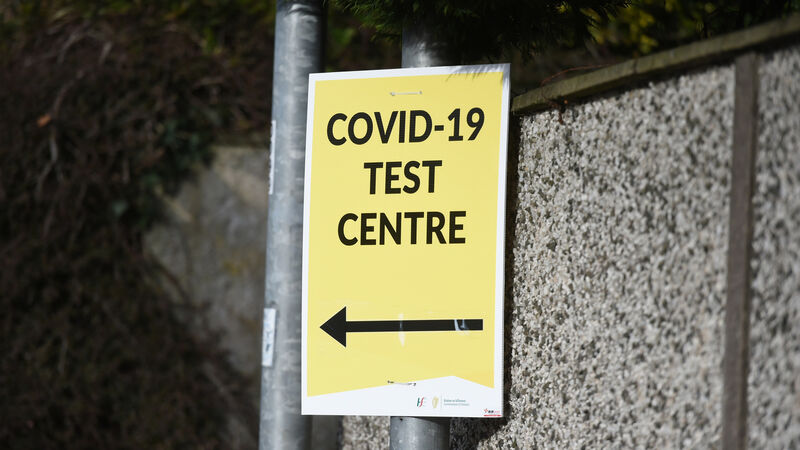A public inquiry into Covid now? It will take years before we know lockdowns have actually worked

Could lockdowns end up doing more damage than they prevented, asks John
THE year is 2070 and Ireland’s Leaving Cert students (no, they never did get around to doing away with the exam) are tackling a history question: ‘How would you assess Ireland’s political response to the Covid-19 pandemic?’
Aha, one student thinks. I’ve studied this in detail, and my grandparents have shared their memories of it with me. And I saw that episode of Reeling In The Years covering 2020 last week - god, those bushy beards were all the rage at the time!
Our student begins to formulate an answer, based on 50 years of assessments, debates and public inquiries about Ireland’s and the world’s varying responses to the pandemic...
“The Taoisigh (worth an extra point, surely!) of the day, Leo Varadkar and Micheál Martin, were rightly acclaimed for their overall response to the Covid-19 crisis. They exuded calmness and led the public through an intensely difficult and uncertain period.
“Although they were criticised for the disastrous nursing home break-outs, and for failing to act quickly ahead of the Delta wave after Christmas, 2020, their public-health-first policies undoubtedly saved thousands of lives of elderly people in Ireland at the time.”
Our student takes a breath, then sets about scribbling a few more points, for extra marks.
“Ultimately, however, despite what was seen then and now as excellent leadership in a crisis, Mr Varadkar’s and Mr Martin’s actions failed to get either into power after the next election. Other issues such as housing caused their downfall.”
The student then delivers a coup de grace, a few lines that would shock the people of Ireland, if they were written in 2022.
“It also has to be pointed out that, in time, the central policy plank of lockdowns that were imposed on the people of Ireland, and in other countries, would be considered a folly.
"In the years and decades after, many people lost their lives, or suffered a negative quality of life, because of the impact of the lockdowns, on a scale that it could be argued was on a par with or even exceeded the number of lives saved by the lockdowns.
“This is the key lesson from the Irish and global response to the pandemic of 2020-22: if a similar strain of coronavirus arrived in Europe now, in 2070, no country would impose a lockdown; rather, elderly and vulnerable people would be protected as much as possible from infection while the rest of society continued, with some social distancing, working-from-home and masking measures. Many studies have shown this method would save the most lives in the long-term.”
Does my prophesy shock you?
I have a feeling it could well come true - a recent, albeit hotly disputed, UK study suggests lockdowns reduced mortality by just 0.2% at “enormous economic and social costs”. Meanwhile, in the UK, there were 5,000 fewer deaths seen in January than expected, despite Covid - and that country had no pandemic restrictions this winter. But of course it will take years before the full effects of the lockdowns is felt and assessed. How many will die or suffer, physically and mentally, in the decades ahead, not directly from Covid, but indirectly through the lockdowns we endured?
It’s impossible to say right now. All we know for sure is that more than 6,000 people have died from Covid-19 in Ireland so far.
I would add that everyone I talk to believes our Taoiseach and Tánaiste have performed well throughout the pandemic - certainly well enough not to have to face an immediate and swift public inquiry, as has been proposed by Sinn Féin.
Any mistakes they have made - and the nursing home deaths in the first wave and the failure to act quickly to stop the Delta wave were undoubtedly grave errors - can be forgiven, at least for the time being. We only have to look at the death toll of other countries to see how bad it could have got.
Equally, we were once hailing New Zealand as the great victors of the global Covid-19 battle, while Sweden was being derided for its insistence on keeping society largely open. Just a year or so on, it is clear that both these verdicts are open to challenge. How will that view change in the coming years? Which will be seen as the ‘winner’ in 2070?
Of course, I am not suggesting we wait anything like 50 years for a public inquiry into Ireland’s response to the pandemic. I am merely pointing out that a proper verdict can only be achieved once we know the medium-term results of the actions we took.
That is why it seems strange to me to hear calls from politicians for an immediate public inquiry.
Mary Lou McDonald has said a full public inquiry should be undertaken into the pandemic, rather than the Government’s preferred option, a review focused solely on the healthcare response. But why the rush?
Firstly, the pandemic may not be over yet - there may be a new strain, and even if it proves as mild as Omicron, it could still exert huge pressure on our health system next winter, especially if it is combined with a wave of flu.
Secondly, it seems clear to me from talking to a variety of people that the general feeling is that our leaders did the best they could - their actions certainly don’t warrant a manhunt for a scapegoat.
Besides, do we really want to exert vast time, energy and expense on an inquiry to tell us what we already know? Does anyone seriously want to see Micheál Martin excoriated and urged to resign after all the efforts he has put in during the pandemic?
We don’t need a knee-jerk public inquiry now; we need to hold one when we are in a position to pass judgment on the pandemic and our response to it, so we can compare our actions to those of other countries, and produce a road-map for the next time a pandemic arrives.
If it is proven that our decision to lockdown for so long was fitting and correct, and saved many lives, then all well and good.
But my feeling is that when all the data is in, when all the tragic deaths directly caused by Covid and indirectly caused by Covid, such as locking down society, are known, that it will be a mighty close call; it could well be proven the Swedish way of trying to keep society open as much as possible saved at least as many lives as the lockdown option.
If that proves to be the case, nobody should pillory Micheál Martin, Leo Varadkar, or indeed any of the other leaders who opted to err on the side of caution. They did what they thought was right, for the right reasons.
But it will surely change how we approach another once-in-a-lifetime pandemic event.










 App?
App?




